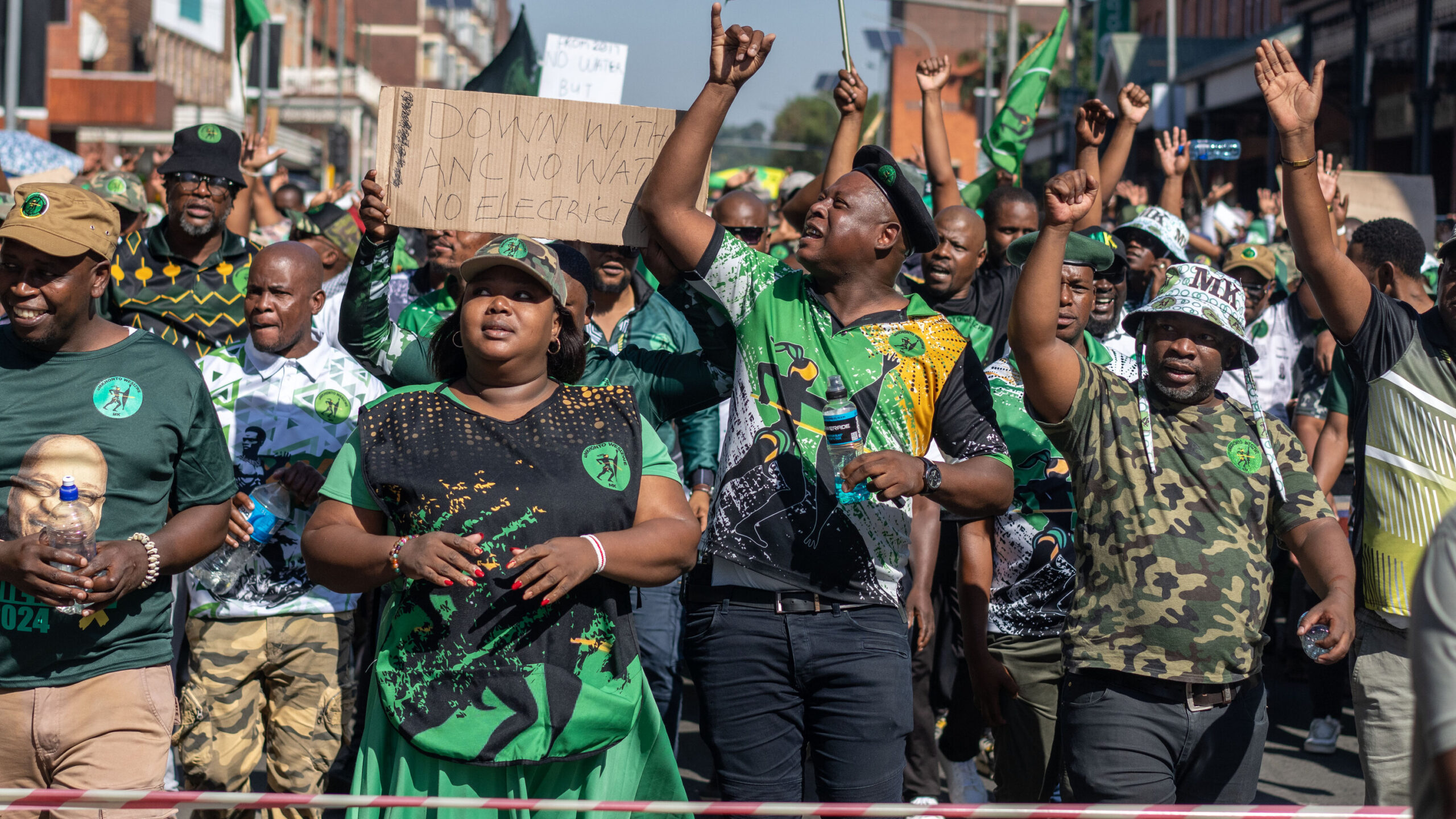Earlier this week, a crowd of jobless graduates, struggling entrepreneurs, and military veterans gathered in the streets of Pietermaritzburg, an eastern city in South Africa, chanting “Jacob Zuma” as they marched. The demonstrators—around 500 in total—caused traffic chaos in parts of the city, located in KwaZulu-Natal Province, which is known for being a stronghold of Zuma, the former president of South Africa and a key figure in the African National Congress (ANC), the party that’s been in power for three decades.
The protest focused on local issues, with participants demanding consistent access to water and electricity. But it also served as a demonstration of strength for uMkhonto weSizwe (M.K.), a new political party led by Zuma. This party aims to undermine the dominance of Zuma’s former allies in the ANC, and the protest was an opportunity for them to show their growing support.
“We are going to have to fight for things to change,” said Khumbuzile Phungula, a 49-year-old protester whose neighborhood had been without water for weeks. “M.K. is all about change.”
The protest had a festival-like vibe, with vendors selling Jacob Zuma T-shirts and M.K.-branded energy drinks, while men dressed in military fatigues—reminiscent of anti-apartheid movements—organized the crowd. The marchers represented a diverse group of frustrated South Africans, many of whom are disillusioned with the ANC, which they see as failing to deliver basic services and riddled with corruption. Zuma’s supporters now form a significant political bloc that could make him a key player in South Africa’s general election on May 29.
However, Zuma himself wasn’t at the march. He was preparing for a hearing at South Africa’s Constitutional Court to determine if he can run for office in the upcoming election. Zuma, now 82, had resigned from the presidency in 2018 amid widespread protests, and later faced a prison sentence for contempt of court after refusing to appear at a corruption inquiry. He served only two months of a 15-month sentence.
Zuma’s new party, M.K., has had its own internal problems. A senior party leader accused M.K. of falsifying signatures required to qualify for the election, an allegation that’s being investigated by the police. Zuma has dismissed these accusations as politically motivated.
Despite these challenges, M.K. has quickly gained momentum since its founding just five months ago. It has shaken up South Africa’s political landscape and is becoming one of the most prominent opposition parties. Its rise has even started to eat into support for the ANC and other established opposition parties like the Democratic Alliance and the Economic Freedom Fighters.
Zuma’s supporters, many of whom look back fondly on his decade in office, cite various reasons for their allegiance to M.K. Some believe his support for expropriating land without compensation will benefit Black businesses, while others appreciate his promises of free college education. Although accusations of corruption followed him during his presidency, his supporters see these as political attacks designed to hinder his challenge to the political establishment.
Political experts warn that Zuma’s party could face setbacks if his legal battles escalate. Mashupye Herbert Maserumule, a professor of public affairs at the Tshwane University of Technology, noted that Zuma’s personal grievances often influence M.K.’s policies, making it highly dependent on his presence.
Meanwhile, the ANC has been actively campaigning in KwaZulu-Natal to counter the rise of M.K., deploying senior leaders and volunteers to reconnect with voters. The party’s efforts appear to be paying off with some voters, but many others remain skeptical, viewing these gestures as attempts to secure votes without addressing deeper issues.
Despite the ANC’s efforts to retain support, the party acknowledges that Zuma’s presence on the opposite side is a unique challenge. Dr. Zweli Mkhize, a former ANC provincial chairman and presidential candidate, said the party was taking the threat posed by M.K. seriously. Although the ANC has weathered breakaway parties before, Zuma’s influence in KwaZulu-Natal is a wildcard.
As South Africa’s election day draws closer, the political landscape remains uncertain. The growing discontent with the ANC and the emergence of new political players like M.K. suggest that South African politics could be on the brink of significant change.















































